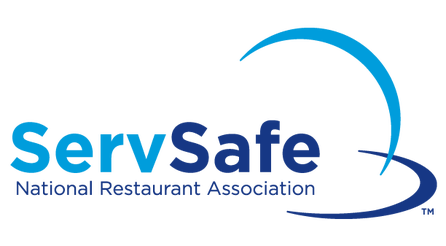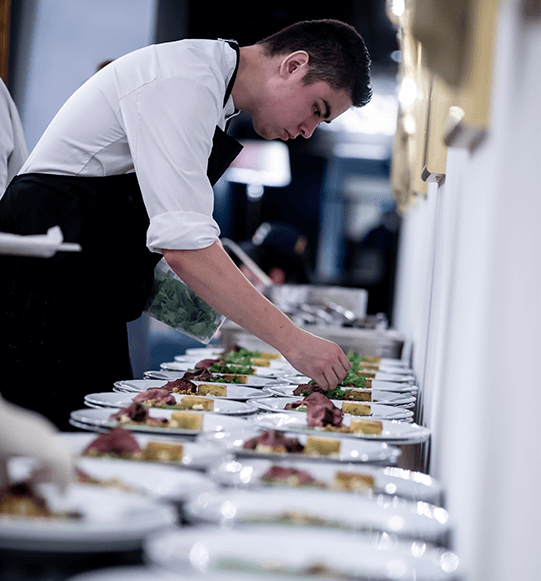Increase Your Task Opportunities: Why a Food Handler Certificate Is a Must-Have in the Culinary Industry
In today's affordable cooking landscape, the importance of a food handler certificate can not be overemphasized. This credential not just reflects an individual's dedication to preserving food security requirements yet additionally works as a vital possession in improving employability within the sector. As dining establishments and food solution facilities progressively prioritize licensed staff, experts geared up with this certification stand to acquire a significant advantage. However, the implications of this certification expand past simple employability; they can likewise influence wage potential and career development. Exploring these facets exposes a deeper understanding of why this qualification is a critical investment for culinary specialists.
Importance of Food Security
In the culinary market, the significance of food safety and security can not be overstated. Making certain the security of food is extremely important for securing public wellness and preserving customer trust. Infected food can lead to severe wellness problems, consisting of foodborne illnesses, which can impact people and result in significant responsibility for food establishments. Executing extensive food safety and security techniques is important for any type of cooking procedure.
Food security includes a variety of procedures, including proper food handling, storage, cooking, and serving strategies. Following these techniques not just decreases the threat of contamination yet additionally aids in abiding by regional health and wellness guidelines. Correct training in food safety and security makes it possible for cooking professionals to acknowledge potential risks and implement safety nets properly.
Moreover, a strong commitment to food safety and security can improve the track record of a culinary facility, promoting customer commitment and service growth. Customers are significantly conscious of food safety concerns, making it essential for food handlers to show their adherence to finest practices. Inevitably, prioritizing food safety is not simply a regulatory need; it is an essential aspect of giving high quality food solution and securing the wellness of consumers.

Certification Demands
Food safety methods are just as effective as the people applying them, making accreditation an essential step for food trainers in the cooking industry. To acquire a Food Trainer Certificate, prospects must usually finish a training program that covers vital subjects such as foodborne ailments, sanitation, personal hygiene, and risk-free food taking care of techniques.
A lot of qualification programs are made to accommodate various discovering designs, using alternatives for online, in-person, or crossbreed formats. Participants must pass an evaluation to demonstrate their understanding of the material, with a minimum passing score typically evaluated 70%.
The duration of training can differ, with some programs calling for just a few hours, while others might cross numerous days. After efficiently finishing the program and examination, candidates get their accreditation, which is typically valid for three to five years, depending on neighborhood laws.
Revival usually entails taking back the program or completing a refresher program to guarantee that food handlers remain upgraded on the most current techniques and criteria. Compliance with these accreditation requirements not just boosts private knowledge but additionally adds to the overall safety and top quality of food service operations.
Work Market Demand
How has the work market for food handlers evolved in current years? The demand for food handlers has actually considerably increased, greatly driven by the expanding awareness of food safety and security and hygiene amongst consumers and governing bodies. With the increase of foodborne diseases, dining establishments, catering solutions, and food production firms are prioritizing the hiring of qualified food handlers to ensure conformity with health guidelines. This shift has actually led to an increased emphasis on food security training and qualification as prerequisites for work in the culinary market.
Furthermore, the broadening dining establishment sector, particularly with the introduction of food distribution solutions and food trucks, has produced an abundance of task possibilities for food trainers. The demand for competent employees that can securely prepare and handle food has become critical. servsafe food handler certificate. Additionally, as culinary services embrace much more strict security procedures, the value of a food handler certificate has risen, making it a vital property see this site for task hunters
Consequently, individuals entering the cooking labor force are locating that acquiring a food handler certificate not just boosts their employability yet likewise positions them favorably in an affordable work market that progressively prioritizes food safety and health criteria.
Advantages of Accreditation
Obtaining a food trainer certification uses various benefits that considerably boost an expert's standing in the cooking market. Firstly, it shows a dedication to food security and health, which is critical in protecting against foodborne diseases. This certification outfits individuals with vital expertise regarding risk-free food managing techniques, including proper storage, cooking temperature levels, and hygiene procedures
Furthermore, having a food trainer certificate can boost a person's employability. Several employers focus on candidates with this certification, watching it as an indicator of expertise and expertise. This can cause much better job chances and possibly greater earnings, as certified people are typically handed over with higher responsibilities.
In addition, the certification fosters a culture of security and accountability within the office. Preserving a food trainer certificate can open up doors to more instructional and profession advancement chances within the cooking field. servsafe food handler certificate.
Actions to Get Qualified
Acquiring a food trainer certification includes a straightforward procedure that can set individuals on a course to enhanced career prospects in the cooking market. The primary step is to discover an approved program or training copyright that provides food safety and security courses. Several organizations supply both find more info in-person and on the internet choices, enabling flexibility in learning.

After efficiently passing the test, individuals will obtain their food trainer certification, which is often valid for a specific duration, normally 3 to five years. To preserve certification, it might be required to complete refresher course courses or retake the examination prior to the expiry date.
Lastly, it is necessary to validate any regional or state-specific guidelines pertaining to food handler certification, as demands can vary. By complying with these actions, people can obtain their qualification and significantly improve their employability in the competitive culinary landscape.

Conclusion
To conclude, obtaining a food handler certification is essential in the cooking industry, as it guarantees adherence to food safety and security standards and improves employability. With the expanding need for certified workers, this credential not just opens up doors to work opportunities however additionally adds to profession innovation and increased earning capacity. Inevitably, a food trainer certification signifies a commitment to security and like this expertise, fostering a culture of accountability that benefits both workers and employers in the food service market.